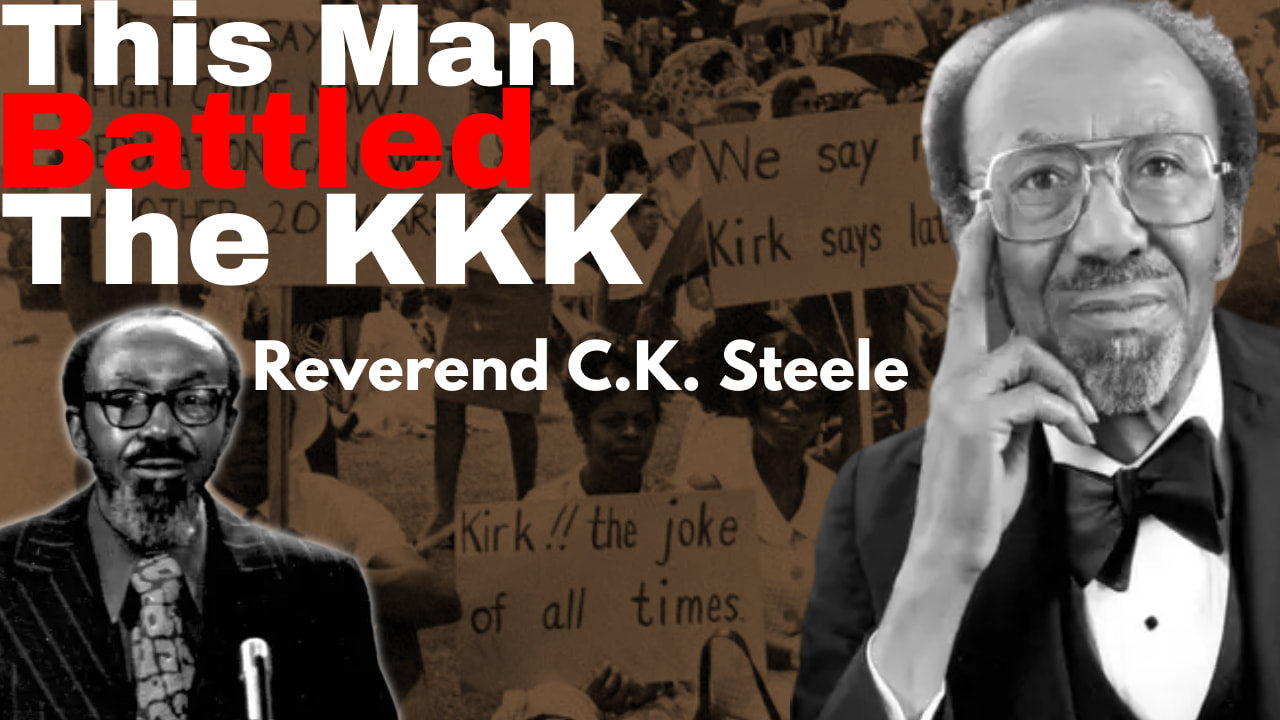|
Rev. Charles Kenzie Steele was born on February 17, 1914, in Gary, West Virginia; his parents were Lyde Bailor and Henry L. Steele. As a young promising leader, Rev. Steel began preaching at the age of 15, and by the age of 21, he became an ordained minister. He put forth the effort to earn a BA degree from Morehouse College three years after he became an ordained minister. He began serving as a minister at Friendship Baptist Church in Northeast Georgia, after a year his services were requested at Hall Street Baptist Church in Montgomery, Alabama in 1939. In 1941, Rev. Steele had the privilege of meeting the love of his life Lois Brock, who he would later make his wife. After 9 years of service in Montgomery, he was called to serve at Springfield Baptist Church in Augusta, Georgia. Four years later he moved again to Tallahassee, Florida to serve at Bethel Baptist Church in 1952. Rev. Steele became the head of the Tallahassee chapter of the NAACP; he also was elected president of the Inter Civic Council in 1956. Under Rev. Steele’s leadership, the Inter Civic Council was created to help direct a bus boycott, which was started by students at Florida A&M University. The Inter Civic Council gathered leaders from the community to organize a carpool as they demanded full integration of the bus system. As the bus boycott began the members of the carpool were harassed by the police department, and 22 members were charged by city officials for operating a transportation system without a franchise. The Inter Civic Council levied an $11,000 fine on city officials in an attempt to disband the boycott. The members of the boycott would not allow their efforts to be stopped; they began walking where they needed to go. In 1956, Rev. Steele joined Rev. Dr. Martin Luther King, Jr as one of the speakers at nonviolence workshops hosted by the Tuskegee Institute. Steele spoke at the annual meeting of the National Baptist Convention, and the Montgomery Improvement Association’s Institute on Nonviolence and Social Change. In 1957 Steele attended the founding meeting of the Southern Christian Leadership Conference; during the meeting, Steele would be elected vice president of the SCLC. In 1962 Steele led the SCLC in a demonstration in Albany, Georgia as vice president while Dr. King was incarcerated. Steele became an active contributor to the Poor People's Campaign, he also led a “Vigil for Poverty” in Tallahassee, FL to recognize and help persons who lacked basic needs. After the death of Dr. King, Steel remained an active force in the fight for equality and justice in Tallahassee. On August 19th, 1980, Rev. Steele gave way to his battle with cancer but his legacy never died. When a bus terminal was created in Tallahassee, FL it was named after Rev. Steele and a statue of him was erected. At that time a statue of a black man was the only statue of a person’s likeness, in the capital city of the State of Florida. Later in 1980, Florida State University bestowed upon Rev. Steele an Honorary Doctor of Humane Letters Degree, Rev. Steele was the first black to have an honorary degree bestowed upon him by Florida State University, and he was the first black to have that particular degree honored to him. Before his death, he established a charter school in Tallahassee, FL the Steele-Collins Charter School, which was also named after former governor Leroy Collins. Rev. Steel was a pastor for 28 years at Bethel Baptist Church, in his time he fought hard for social change in Tallahassee, FL as well as the south. Rev. Steel faced death and many incarcerations to help blacks receive humane treatment from their white counterparts. Rev. Steele made Tallahassee, FL, and every other city he lived in a better place for blacks to live because of his actions and relentlessness. Rev. Charles Kenzie Steele, we stand on your shoulders. J.A. Ward. Click here to support the OTSOG book series
2 Comments
|
Details
Categories
All
Click Here to join our mailing list
|
Contact Us: |
Connect With Us |
Site powered by PIT Web Design


 RSS Feed
RSS Feed



